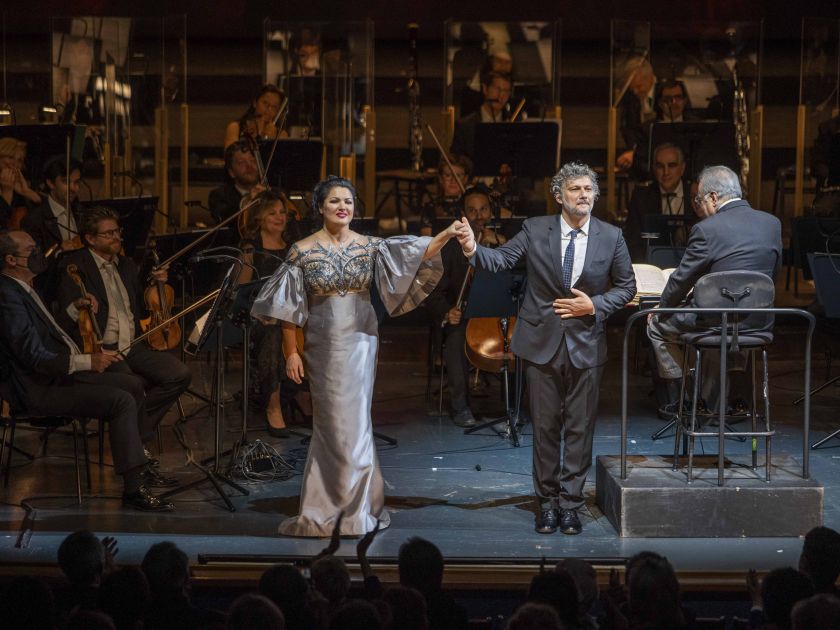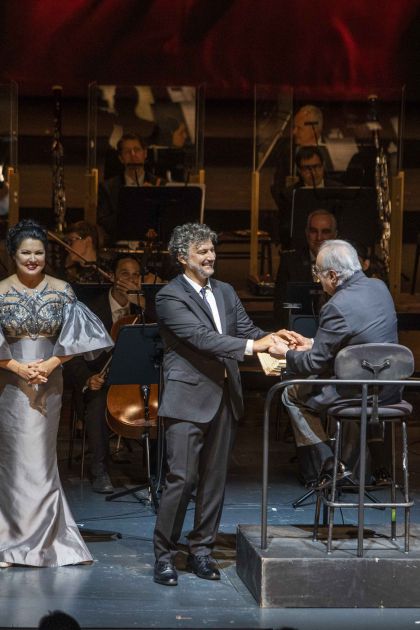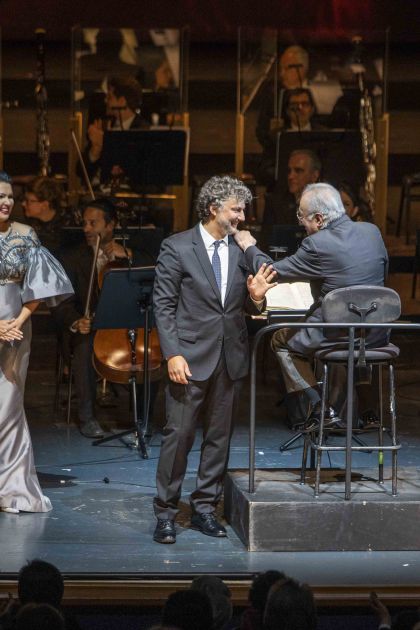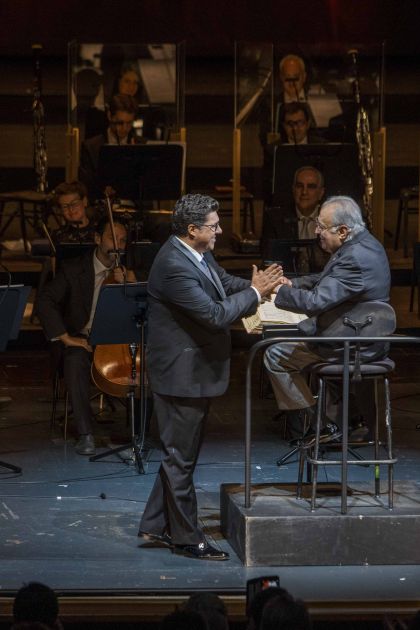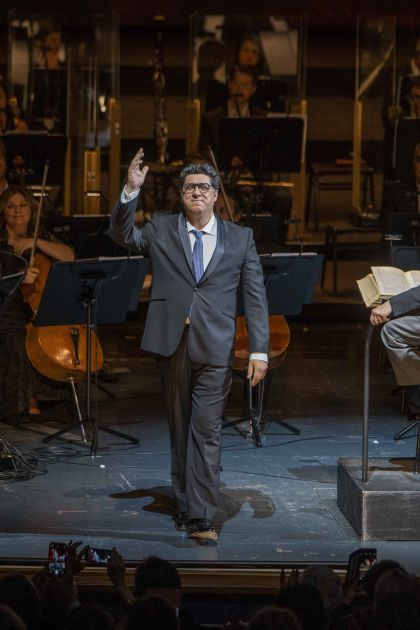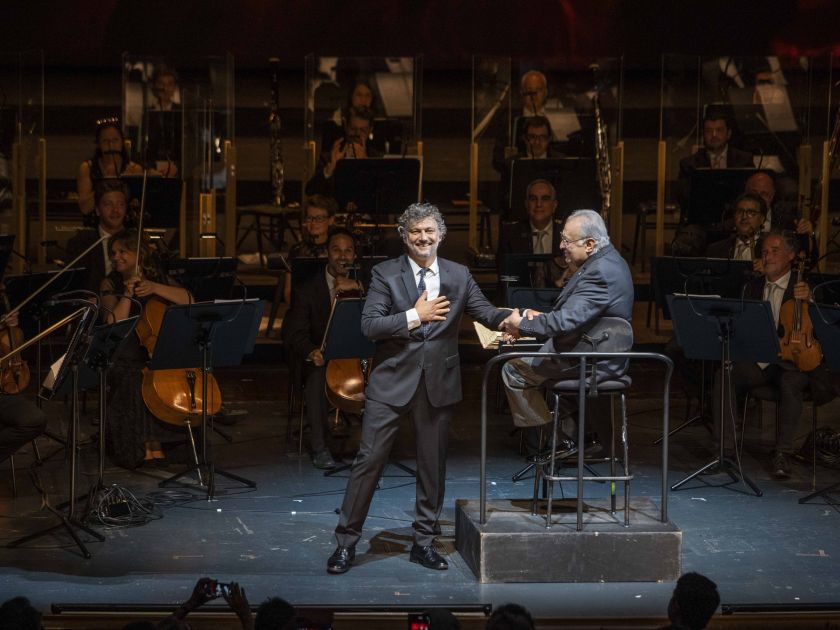Anja Harteros and Bryn Terfel had to cancel their participation in Tosca at the Salzburg Whitsun Festival. We are happy to announce that Anna Netrebko will take over the title role at short notice and Luca Salsi the Scarpia.
- Der Tod wird kommen und deine Augen haben, der Tod, der uns begleitet von morgens bis abends, schlaflos, dumpf, wie ein alter Gewissensbiß oder ein törichtes Laster. Und deine Augen werden ein leeres Wort sein, ein verschwiegener Schrei, ein Schweigen.
About the Production
Hardly any other opera is so closely bound up with the city of Rome as Giacomo Puccini’s Tosca. Embedded in the contemporary historical background of Napoleon’s victory at the battle of Marengo in June 1800, a fictive intrigue plays out at the heart of Rome. The drama of love, jealousy and abuse of power that unfolds between the artist Cavaradossi, chief of police Scarpia and the singer Floria Tosca is located in three real settings: in the church of Sant’Andrea della Valle, where Cavaradossi is working on a commission, in the Palazzo Farnese, in which the sadistic Scarpia hatches his nefarious plots, and in the Castel Sant’Angelo as the prison on the banks of the Tiber and place of death. Puccini contents himself not simply with a description of the external milieu but also gives the music touches of local Roman colour: the melody of the Te Deum in the finale of Act I follows Roman liturgical use; the original pitches of the church bells around the Castel Sant’Angelo were incorporated into the prelude to Act III, and Puccini had the text of the shepherd boy’s folksong specially written in the dialect of the Campagna, the hilly region around Rome. Alongside all the opera’s extensive references to Rome it is often forgotten that it also premiered in the city, at the Teatro Costanzi on 14 January 1900.

